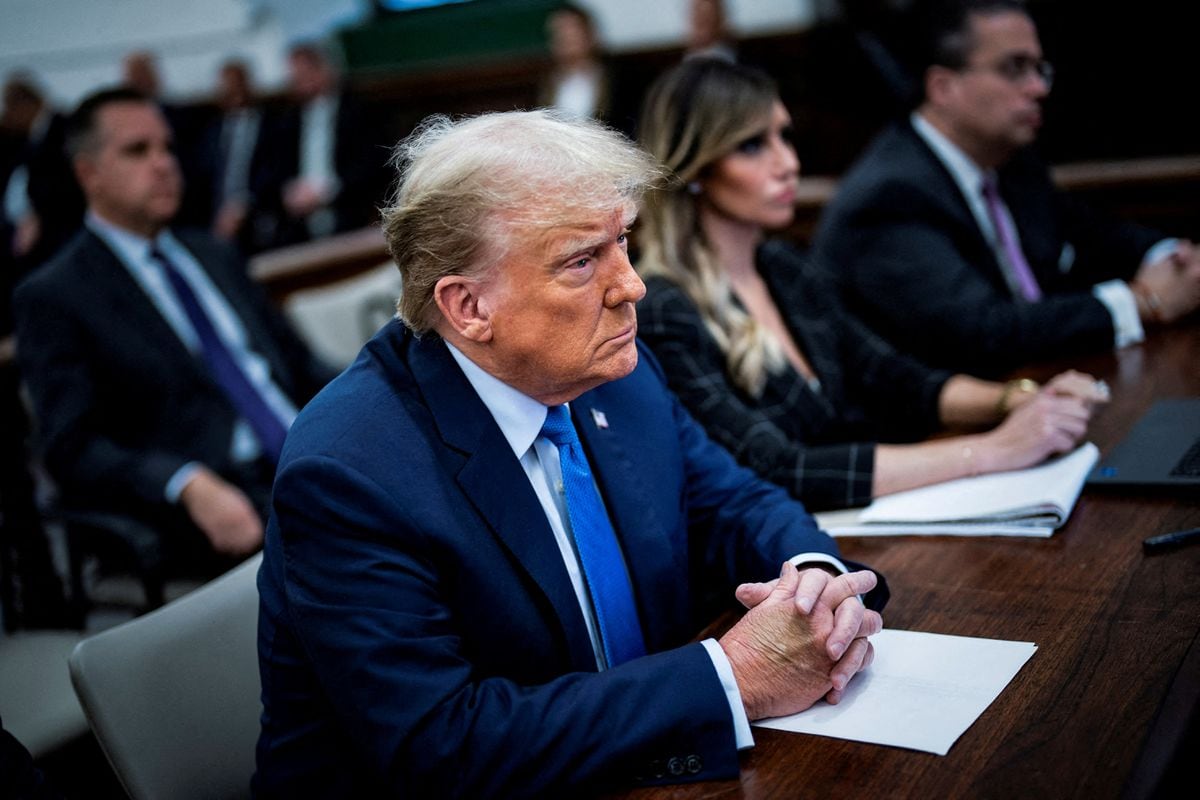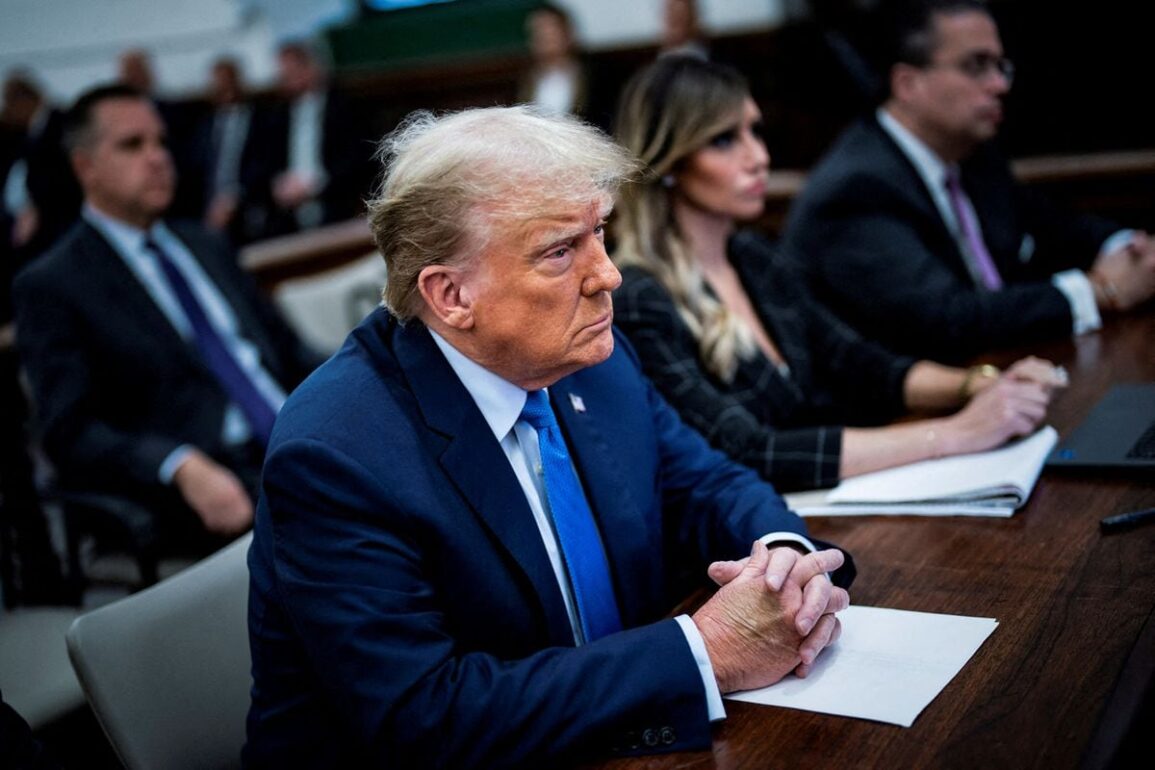
Donald Trump wants to make a show of sitting in the dock and testifying from the stand. His lawyers have supported the request of several media outlets that the first criminal trial against a former president of the United States, scheduled for March 4, 2024, be televised live. The prosecution opposes the move, claiming that Trump wants to turn the trial into a circus. Federal Judge Tanya Chutkan has to rule on whether to allow the hearings to be televised. What she decides will have a great impact not only on the trial, but also on American politics, since the hearings will be held in the middle of the Republican primary elections and just a few months before the 2024 presidential elections.
Court hearings at the federal courthouse in Washington are open to the public. In the most high-profile cases, people wait in line to ensure they get a spot before the courtroom fills up, as has happened this year, for example, during hearings of the monopoly trial against Google. Sometimes an additional room is set up to follow the session via closed circuit television, which is also available in the press room. Attendees are not allowed video or photo cameras, recorders or other electronic devices. Cellphones must be turned off. The question is whether these rules, which apply generally in both civil and criminal trials, should be maintained in a case as important as Trump’s. There are lots of arguments for and against.
Trump is facing four criminal trials, but it is only certain that the case in Georgia — for alleged election subversion — will be televised, as this is underlined in state rules. It remains to be seen what will happen with the other cases. A large group of major media outlets, including television channels, news agencies and newspapers, submitted a request to Judge Chutkan last month, asking if they could access the court with cameras and broadcast the federal election interference trial in Washington, which is the first criminal trial that Trump will face. Failing that, they asked the judge to broadcast her own live stream of the trial on YouTube or, alternatively, at the end of each day’s session.
“Since the founding of our nation, we have never had a criminal case where securing the public’s confidence will be more important than with United States v. Donald J. Trump,” the media argue in their preliminary statement. “The prosecution of a former president, now a presidential contender, on charges of subverting the electoral process, presents the strongest possible circumstances for continuous public oversight of the justice system. That oversight, rooted in decades of First Amendment precedent and sound judicial policy, will be functionally illusory without audiovisual access to these proceedings. Through counsel, Trump has repeatedly spoken about the importance of cameras in the courtroom in this case. For his benefit, and that of the court and the public, real-time audiovisual coverage will be a critical step in stemming false conspiracy theories across the entire spectrum of public opinion, regardless of the trial’s outcome,” they argued. The request is being considered in a civil case parallel to the main one.
Several hearings of the case have been held in Washington courts. But except for the day when Trump was in court to issue a plea, the courtroom — which fits around 100 people — has not even been at capacity. Journalists, onlookers and Trump allies have attended some of these hearings. For example, a few weeks ago, when it was being discussed whether a gag order should be imposed on the former president to stop him attacking prosecutors, witnesses and court personnel, his loyal ally Georgia Congresswoman Marjorie Taylor Greene was in the courtroom. But when it comes to the moment of truth — the first trial with Trump in the dock — it is likely that the court will be overwhelmed by onlookers.
“The means exist today, through audiovisual recording and dissemination, for Americans to exercise their constitutional right to observe trials, particularly a historic case like this one,” the request states, noting that the right to witness the case should not be restricted to the few who can fit in the courtroom. “At bottom, no principled constitutional distinction separates the established right of citizens to observe legal proceedings first-hand and the right to record and broadcast those proceedings for the benefit of the many millions who cannot attend these proceedings in person. The nature of the constitutional right should not change depending on the means by which trials are observed. This trial should therefore be televised.”
Turning voters into jurors
Trump’s lawyers were initially hesitant. The idea of showing a presidential candidate sitting in the dock for the alleged commission of numerous crimes did not seem a good way to sway potential voters. Trump, however, has embraced his status as a defendant and used it present himself as a victim of political persecution. In this way, he has been able to take advantage of his legal troubles to raise funds and increase his lead over the other Republican presidential hopefuls. And Trump is willing to play the trial card for his presidential campaign. Ultimately, he wants to turn every U.S. voter into a juror who decides his fate at the ballot box.
For this reason, Trump has been quick to support the idea of broadcasting the trial. “For the first time in American history, an incumbent administration has charged its main, leading electoral opponent with a criminal offense. Aware that its charges are meritless, the prosecution has sought to proceed in secret, forcing the nation and the world to rely on biased, secondhand accounts coming from the Biden administration and its media allies. As a result, the citizens of our great country are unable to review for themselves what the facts of this case show, and how unfairly president Trump is being treated at the hands of his political opponent,” reads the motion filed by Trump’s lawyer, John Lauro.
“The prosecution wishes to continue this travesty in darkness. President Trump calls for sunlight,” continues the document, which argues “this case has all the unfortunate badges of a trial in an authoritarian regime, lacking legitimacy or due process.”
“President Trump absolutely agrees, and in fact demands, that these proceedings should be fully televised so that the American public can see firsthand that this case, just like others, is nothing more than a dreamt-up unconstitutional charade that should never be allowed to happen again” says Lauro.
The motion says that Trump’s defense will show that he had “the sacred obligation as president to investigate and address fraud and other irregularities in the 2020 presidential election” and provide “all the evidence regarding an election that president Trump believes was rigged and stolen.” Even though there is no proof of electoral fraud, many U.S. citizens believe the 2020 election was rigged.
No one doubts that Trump on the stand would make for an engaging TV spectacle. The prosecution’s objection to televising the trial is clearly less popular. On Monday, the prosecution responded to Lauro’s motion. In a four-page document, they begin by pointing out that he “does not cite a single rule or case in support of his position, because there are none.” It adds: “Instead, decrying the alleged unfairness of the unequivocal and constitutionally-sound broadcast prohibition that has governed federal criminal trials — no matter the defendant — for decades, the defendant’s response is a transparent effort to demand special treatment, try his case in the courtroom of public opinion, and turn his trial into a media event. The Court should reject this attempted distraction.”
Special counsel Jack Smith argues that Trump is asking to receive different treatment than other defendants in high-profile trials, such as those accused of seditious conspiracy for the assault on the Capitol on January 6, 2021. “The comprehensive, often minute by-minute, public reporting on courtroom hearings in this case provides further evidence that the defendant’s desired ‘sunlight’ need not come from eschewing the rules,” the document states.
“Carnival atmosphere”
The prosecutor’s office appears to be tiring of Trump’s legal strategy. “He may elect to craft court filings with the goal of gathering media coverage rather than lawful relief from the court, as he appears to have done on this and many other occasions. But neither he nor any other criminal defendant is free to bend or break the rules simply to advance a goal of ‘present[ing] his positions in this case to the American public,’” the response states.
“The defendant peppers his response with various references to ‘fairness,’ but what he actually seeks is to defy a uniform and longstanding broadcast prohibition that was crafted precisely with fair and orderly trial proceedings in mind,” the prosecutor says. “He desires instead to create a carnival atmosphere from which he hopes to profit by distracting, like many fraud defendants try to do, from the charges against him.”
Smith also points out that such a scenario “is not hypothetical.” “As the Court has already observed in proceedings in the defendant’s criminal trial, the defendant and his counsel will, if permitted, design their in-court statements instead to wage a public relations campaign,” he explains in the document.
During Trump’s civil fraud trial in New York, the former president used his testimony to dismiss the case as a “political witch hunt,” which led the judge to admonish him and tell him that he was not at a political rally.
“The Court should not grant the applications in plain contravention […] and further motivate the defendant and his counsel to make improper statements inside the courtroom to provoke a public reaction outside of it,” the document adds.
Sign up for our weekly newsletter to get more English-language news coverage from EL PAÍS USA Edition
This post was originally published on this site be sure to check out more of their content.







